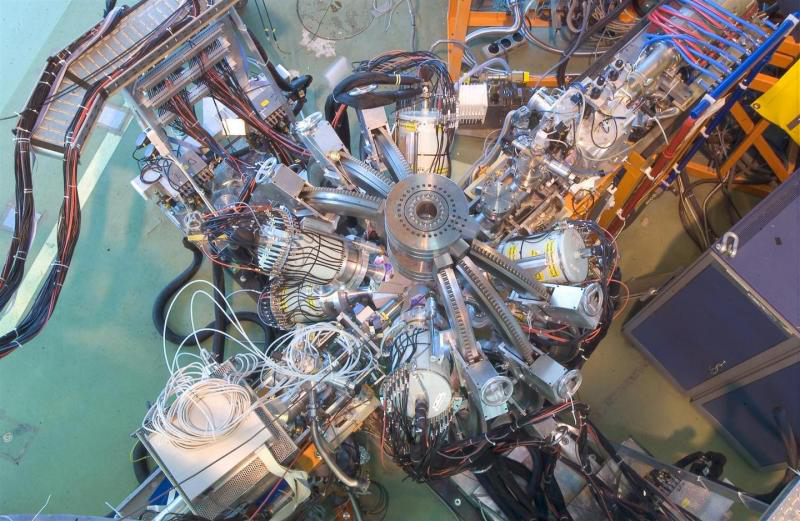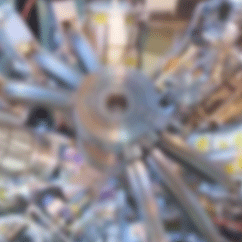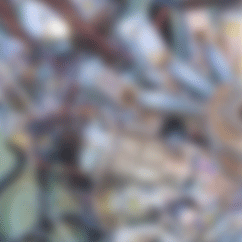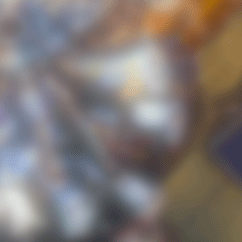A matter of language
Science and Research in Digital Arts [2016]

It became quite en vogue to link arts, especially digital arts, with science and research. And that link is a bit asymmetrical. It is artists who claim to be researchers, labeling their work as ‘science’, and not so much molecular biologists who include references to works of art in their conference papers.
Calling artistic practice ‘science’ and suggesting implicitly scientific ’research’ is pretentious. The creation of a work of art has not much to do with classical research in natural sciences. So, if 'artistic research' is supposed to make sense, please also include the term `taxi-to-the-airport research' in your press release. That at least provides a frame of reference.
Why bother? Because we are living in an era where science needs to be defended against people who teach their children that the world is 2000 years old, by folks who believe global warming is an internet hoax, and where religious fanatics bend reality according to taste. Art has a strong voice and power. We should use it in a meaningful way. Watering down the concepts and ideas of science just to make our own work look and sound more fancy is ignorant.

In engineering, the goal is to build a product according to specifications. At the beginning of the process stands a desire to solve a problem or improve an existing system to fulfill the same task better, or do something not possible before. This specification might not include the recipe how to achieve the goal, and it is up to the engineers and their experience and intuition to come up with a solution. This process is highly creative, there are always several options to choose from and we can talk about engineering in terms of elegance, beauty, minimalism, formal coherence and a lot of other factors that we might as well use to judge a work of art, but there is one fundamental difference:
The result can be verified according to objective criteria. We will see how this relates to artistic creation. Now, what's the deal with sciences, especially natural sciences? It seems we are closer to the arts here, on a first glance. There are discoveries to be made, great findings that happen due to accidents, isn't this the same as when we connect the video projector all the way wrong and suddenly there are these cool artefacts, and afterwards we try ten projectors and see what happens?
No?
No.
The whole point about scientific research is the attempt to learn more about the world by finding and proving a theory. At the end of the day, successful research is all about objective, verifiable results. Either a (mathematical) model of how things are supposed to be like has been proven correct, and we can work with that in the future, or it has been proven wrong and we know that the world does not behave how we were assuming it. Research relies on precision engineering. On pushing materials to the limits, on inventing new methods, on reaching higher energies, lower distances, smaller machines, faster computers, better algorithms, and all that needs imagination, intuition, and great attention to details. All things we artists can strongly relate to. Perhaps a bit too strong.
But, ultimately we have a similar situation in research than in engineering. We start with a request and we end with a result that can be verified, is repeatable and follows logical rules. There is no magic. And there is no room for taste or opinion. The taste and opinion comes into the game only in parts that are not essential to the goal and which can be changed without any influence on the result. Painting the outside of the beam confinement yellow or pink will not interfere with the protons inside. Neither does the font on the graphical display that shows the results. Let's talk about artistic creation. In a recent discussion someone mentioned that there is a lot of research necessary for example in computer animation to get behaviour right, and thus there is science involved in the arts. And that's of course true but it misses an essential point, and perhaps obscuring it is the strategy of the 'artistic researchers'. The research is not about the creation of the artwork it is about the tools used for it. Of course there is chemistry in paint, and math in sound.

But the research and the engineering falls short when it comes to making creative decisions, even in the very rare cases of artists who are also strongly involved in the creation of their tools on a serious engineering level.

Because in the arts there is no objectivity, there is no formal theory that can explain it all, and if there are standard procedures for certain tasks, these are exactly not the points where artistic innovation emerges but the meat around it to make it happen. In the arts, we cannot verify if an artwork is done. We cannot quantify how much of the initial goal has been achieved. No artistic process starts with a clear and complete vision of how the end result is going to be. If this is the case, then the artist is copying themselves, and that's something their assistant or anyone could do. Once the innovation is achieved, repetition requires no artistic skill anymore, the skill comes into place in the variation and that can only be the result of trial and error inspiration and taste. Now, find a theory for that. One that helps making the next painting/song/movie/audiovisual installation better.
If you found the solution, I am happy to peer review the paper. And If you don’t do something that is worth being published in say Scientific American or Physics Review, just label it art. Not science.
photo © CERN url: http://home.cern/about/experiments/isolde